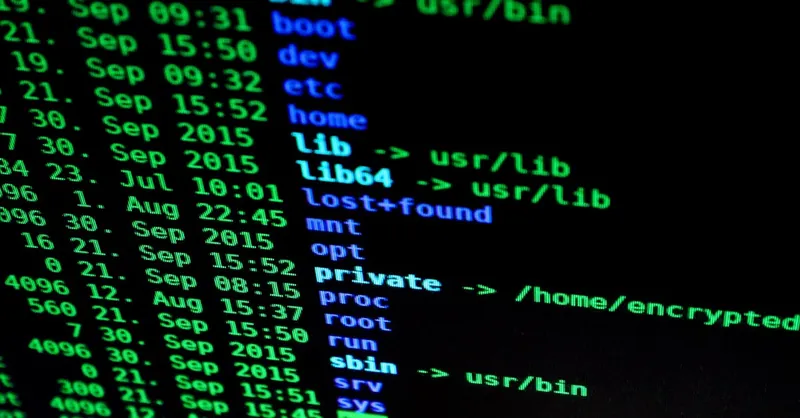How to Become an Ethical Hacker: A Beginner's Roadmap
Category: Ethical Hacking
Unlock Your Path to Ethical Hacking Success
Are you captivated by the world of cybersecurity and eager to start your journey as an ethical hacker? Whether you’re a complete beginner with zero experience or someone with basic tech skills looking to dive deeper, understanding how to become an ethical hacker can feel overwhelming. You’ve likely landed here because you want a clear, actionable guide — one that breaks down complex concepts into manageable steps without assuming prior expertise.
This post is designed precisely for you: aspiring ethical hackers hungry for foundational knowledge, practical skills, and a clear learning pathway. We recognize your pain points — the chaos of abundant information online, unclear pathways, and the desire for legitimate, ethical hacker training. Unlike generic guides that toss you into broad jargon, this comprehensive roadmap lays out every critical element, from understanding what ethical hacking really means to mastering relevant tools, legal frameworks, and scripting.
By guiding you through each stage, from basics to advanced insights, you’ll gain not only knowledge but a solid framework to build and grow your ethical hacking career confidently. Ready to uncover the essential skills, certifications, and real-world techniques highly sought after in cybersecurity? Let’s dive into a journey tailored for learners just like you, designed to transform curiosity into expertise.
- Unlock Your Path to Ethical Hacking Success
- Understanding Ethical Hacking
- Essential Technical Foundations for Ethical Hackers
- Learning Key Ethical Hacking Tools and Technologies
- Building Practical Scripting Skills for Ethical Hacking
- Legal and Ethical Guidelines: Staying on the Right Side of the Law
- Hands-on Practice with Vulnerability Assessment and Penetration Testing
- Getting Certified and Gaining Credibility: Essential Certifications for Ethical Hackers
- Developing a Career Path in Ethical Hacking
- Advanced Concepts and Specializations: Deepening Your Ethical Hacking Expertise
Understanding Ethical Hacking
Before diving into tools and techniques, it’s crucial to understand what ethical hacking truly means, why it holds immense importance in today’s digital landscape, and how it differs from other forms of hacking like black hat and gray hat hacking.
What is Ethical Hacking?
Ethical hacking, also known as white hat hacking, refers to the authorized practice of probing computer systems, networks, or applications to identify security vulnerabilities before malicious hackers can exploit them. Ethical hackers use the same methods and tools as cybercriminals but operate within legal boundaries and with explicit permission. Their ultimate goal is to enhance cybersecurity defenses and safeguard sensitive data.
Why is Ethical Hacking Important?
In an era where cyber attacks are increasing in frequency and sophistication, ethical hacking plays a vital role in protecting organizations from financial losses, reputational damage, and legal repercussions due to data breaches. By conducting proactive security assessments, ethical hackers help companies stay a step ahead of malicious actors, ensuring systems remain robust against evolving threats.
Ethical Hacking vs. Black Hat and Gray Hat Hacking
Understanding the key differences between hacking categories is essential for grasping the ethical framework:
| Hacking Type | Intent | Legality | Permission | Common Activities |
|---|---|---|---|---|
| Ethical Hacking (White Hat) | Improve security and fix vulnerabilities | Legal and authorized | Given explicitly | Penetration testing, vulnerability assessment |
| Black Hat Hacking | Exploit systems for personal gain or damage | Illegal | None | Data theft, malware deployment, system disruption |
| Gray Hat Hacking | Explores systems without permission, but without malicious intent | Illegal or legal (ambiguous) | Not given | Reporting vulnerabilities without consent |
- White hat hackers operate with full transparency and consent from the system owners.
- Black hat hackers act maliciously, often causing harm or stealing data for profit or sabotage.
- Gray hat hackers fall in between—they may access systems without permission but often do not exploit the information maliciously. However, their actions remain legally questionable.
By committing to ethical hacking principles, you adhere to a code of conduct that prioritizes integrity, legality, and constructive security improvements—qualities crucial for building a trustworthy cybersecurity career.

Image courtesy of Antoni Shkraba Studio
Essential Technical Foundations for Ethical Hackers
To embark on a successful ethical hacking journey, building a solid grasp of technical fundamentals is non-negotiable. These core areas serve as the backbone for understanding how systems communicate, where vulnerabilities hide, and how attacks unfold. Every aspiring ethical hacker must gain fluency in networking basics, the workings of operating systems, especially Linux and Windows, and the most common security protocols used to protect data and infrastructure.
Networking Basics: The Language of Connectivity
Networking knowledge is the cornerstone of ethical hacking because most cyber attacks originate from exploiting network weaknesses. Start by mastering these networking concepts:
- IP Addressing and Subnetting: Understand IPv4, IPv6, and how subnet masks segment networks.
- TCP/IP Model: Learn the layers (Network, Transport, etc.) and how data packets traverse systems.
- Common Protocols: HTTP/S, FTP, DNS, SMTP, SSH, and their security implications.
- Ports and Services: Know well-known TCP/UDP ports and how services listen for connections.
- Firewalls and Network Devices: Grasp how routers, switches, IDS/IPS, and firewalls control traffic.
This foundation enables you to analyze network traffic, identify weak points, and simulate attack scenarios like Man-in-the-Middle or packet sniffing ethically.
Operating Systems: Your Hacker’s Playground
Familiarity with operating systems is crucial since ethical hackers must navigate and test both client and server environments. Focus on:
- Linux: Dominates the cybersecurity world due to its flexibility and open-source nature. Learn key distributions like Kali Linux, Ubuntu, and commands for system navigation, permissions, process management, and scripting.
- Windows: Widely used in enterprise environments, making it a major target for attacks. Understand Windows architecture, PowerShell scripting, Active Directory basics, and built-in security features.
Mastering multiple OS platforms equips you to identify OS-specific vulnerabilities, escalate privileges, and tailor attacks or defenses effectively.
Common Security Protocols Every Ethical Hacker Should Know
Security protocols establish rules for data encryption, authentication, and safe communication. Knowing how these protocols function—and how attackers bypass them—is essential.
- SSL/TLS: Foundation of secure web browsing via HTTPS.
- IPSec: Secures IP packets for VPNs and private networks.
- Kerberos: Authenticates users in Windows domains.
- OAuth and SAML: Used for secure single sign-on and authorization.
- WPA2/WPA3: Protects wireless networks.
By understanding these protocols, ethical hackers can perform penetration tests on encryption weaknesses, sniff encrypted traffic, or exploit misconfigurations ethically.
Building expertise in networking, operating systems, and security protocols creates a powerful base for all subsequent skills in ethical hacking. These pillars are the technical lexicon you will continuously reference, test, and defend in your ethical hacking career. Developing deep knowledge here ensures you are well-prepared to tackle practical hacking challenges and advance in cybersecurity.

Image courtesy of Antoni Shkraba Studio
Learning Key Ethical Hacking Tools and Technologies
To become a proficient ethical hacker, mastering the right tools and technologies is essential. These powerful utilities help you scan, analyze, exploit, and secure systems responsibly. Familiarity with widely-used tools not only boosts your practical skills but also enhances your credibility in the cybersecurity community. Below is an overview of some of the most popular, industry-standard ethical hacking tools and their primary applications.
1. Nmap (Network Mapper)
Nmap is a versatile open-source tool for network discovery and security auditing. It allows ethical hackers to:
- Scan IP addresses and ports to identify active devices and services.
- Detect versions of software or operating systems running on targets.
- Map network topology for reconnaissance.
- Identify vulnerabilities based on open ports and running services.
Nmap's scripting engine (NSE) further extends its capabilities for vulnerability detection and automated exploitation attempts.
2. Wireshark
Wireshark is the leading network protocol analyzer used for packet capture and inspection. Ethical hackers use Wireshark to:
- Monitor real-time network traffic, dissecting each packet for detailed analysis.
- Detect unusual patterns or malicious payloads within communication streams.
- Debug network configurations and validate security controls.
- Perform Man-in-the-Middle (MitM) attack simulations by examining intercepted data.
Understanding Wireshark’s interface and filtering capabilities equips beginners to scrutinize network behavior precisely.
3. Metasploit Framework
The Metasploit Framework is an essential exploitation platform for ethical hackers. It combines a vast library of exploits, payloads, and auxiliary tools enabling:
- Automated penetration testing against vulnerable systems.
- Crafting custom attack payloads to test defenses.
- Post-exploitation activities like privilege escalation and data extraction.
- Integration with other tools to streamline complex attack chains.
Metasploit’s modular design makes it a perfect choice for both beginners learning exploitation and experts conducting thorough security assessments.
4. Burp Suite
Burp Suite is a comprehensive web vulnerability scanning and testing platform. Its key features include:
- Intercepting and modifying HTTP/HTTPS traffic between the browser and web servers.
- Identifying common web vulnerabilities like SQL injection, Cross-Site Scripting (XSS), and broken authentication.
- Automating vulnerability scans to save time during assessments.
- Manipulating web requests to test input validations and session management.
Burp Suite is indispensable for ethical hackers specializing in web application security due to its intuitive interface and powerful extensibility.
These tools represent just the beginning of your ethical hacking toolkit but are foundational for hands-on experience. Mastering Nmap, Wireshark, Metasploit, and Burp Suite provides you with critical capabilities to conduct thorough penetration tests, network traffic analysis, and vulnerability assessments. As you progress, combining these tools with scripting skills and ethical guidelines will empower you to uncover security flaws methodically while respecting legal boundaries.

Image courtesy of Pixabay
Building Practical Scripting Skills for Ethical Hacking
In ethical hacking, the ability to write and understand scripts is a game-changer, enabling automation, customization, and deeper engagement with security testing tasks. Scripting allows ethical hackers to streamline repetitive operations, develop tailored tools, and manipulate system behaviors effectively during penetration tests. To get started, focus on three critical scripting languages widely used in cybersecurity: Python, Bash, and PowerShell.
Why Scripting Matters in Ethical Hacking
- Automation of Tasks: From scanning networks to exploiting vulnerabilities, scripts automate complex sequences saving time and reducing human error.
- Custom Exploits and Payloads: When off-the-shelf tools aren’t enough, scripting empowers you to craft bespoke attacks and test scenarios.
- Deeper System Interaction: Scripts make it easier to interact with operating systems, APIs, and network protocols programmatically.
- Improved Troubleshooting and Analysis: Automate log parsing, data extraction, and report generation to quickly assess security postures.
Key Scripting Languages to Learn
- Python: Known for its readability and vast library ecosystem, Python is the most popular scripting language among ethical hackers. It supports everything from network scanning (using modules like Scapy) to exploit development and automating reconnaissance.
- Bash: The default shell scripting language on Linux and UNIX systems, Bash excels at automating system administration tasks, file manipulation, and chaining command line utilities — vital skills for hacking in Linux environments.
- PowerShell: An advanced scripting environment for Windows, PowerShell enables automation of system management, active directory tasks, and penetration testing activities in Windows-centric networks.
Beginner-Friendly Scripting Tutorials to Kickstart Your Skills
- Python: Start with writing simple scripts that perform network port scans, automate web requests, or parse log files. Explore libraries such as
socket,requests, andparamikofor SSH. - Bash: Practice writing scripts to automate file backups, process user input, or chain network commands like
nmapandnetcat. - PowerShell: Learn to script Active Directory enumeration, query system information, and manipulate Windows processes remotely.
Investing time in scripting not only ramps up your efficiency as an ethical hacker but also expands your creative problem-solving toolbox. As you progress, combining scripting with penetration testing tools and security knowledge will enable you to execute sophisticated, rule-abiding hacking engagements that stand out in the competitive cybersecurity landscape.

Image courtesy of Tima Miroshnichenko
Legal and Ethical Guidelines: Staying on the Right Side of the Law
As an aspiring ethical hacker, understanding and strictly adhering to legal and ethical guidelines is non-negotiable. Ethical hacking is not just about wielding powerful tools and uncovering vulnerabilities—it requires a firm commitment to operate within the boundaries of the law and industry best practices. Ignoring these boundaries risks severe legal consequences and damages your credibility in the cybersecurity community.
Understanding Cyber Laws and Compliance
Every country has its own set of cybersecurity laws and regulations governing activities related to hacking, data protection, and privacy. Key among these are laws that prohibit unauthorized access to computer systems, data theft, and cyber fraud. Before conducting any security testing:
- Obtain Explicit Authorization: Always work under a clearly defined legal contract or written permission from the system owner. Unauthorized hacking—even with good intentions—is illegal.
- Know Relevant Legislation: Familiarize yourself with laws such as the Computer Fraud and Abuse Act (CFAA) in the US, the General Data Protection Regulation (GDPR) in Europe, or other applicable local regulations.
- Comply with Industry Standards: Ethical hackers often follow frameworks like the NIST Cybersecurity Framework, ISO/IEC 27001, or specific compliance requirements such as HIPAA or PCI-DSS depending on the industry.
The Ethical Responsibilities of an Ethical Hacker
Ethical hacking demands more than just legal compliance—it requires a professional approach grounded in integrity and respect for privacy. Core ethical responsibilities include:
- Confidentiality: Safeguard all sensitive information accessed during testing. Do not disclose vulnerabilities or data without authorization.
- Transparency: Maintain clear communication with stakeholders about methods, findings, and limitations.
- Non-Disclosure: Respect non-disclosure agreements (NDAs) and avoid exploiting vulnerabilities for personal gain.
- Reporting: Provide detailed, actionable reports that help organizations strengthen their security posture without causing harm.
By aligning your ethical hacking activities with these legal and ethical principles, you not only protect yourself legally but also build trust and a strong reputation as a cybersecurity professional. This foundation is crucial for a sustainable and rewarding career in ethical hacking.

Image courtesy of Kindel Media
Hands-on Practice with Vulnerability Assessment and Penetration Testing
Becoming a skilled ethical hacker requires practical experience with vulnerability assessment and penetration testing (VAPT)—the core activities used to evaluate and strengthen cybersecurity defenses. These hands-on techniques allow you to systematically identify, exploit, and document security weaknesses in computer systems, networks, and applications. To build your confidence and expertise safely, it’s essential to practice in controlled environments that mimic real-world scenarios while ensuring legal compliance.
Step-by-Step Guide to Performing Vulnerability Assessments
A vulnerability assessment involves scanning and analyzing systems to discover known security flaws without necessarily exploiting them. The typical workflow includes:
- Define Scope and Obtain Authorization: Clearly specify the systems, networks, or applications targeted and secure written permission from the organization or system owner.
- Information Gathering (Reconnaissance): Collect data on target IP ranges, open ports, running services, and software versions using tools like Nmap and Nessus.
- Vulnerability Scanning: Use automated scanners such as OpenVAS or Nessus to detect potential vulnerabilities including misconfigurations, outdated software, and weak credentials.
- Manual Verification: Validate scanner findings manually to reduce false positives and gain deeper insight into vulnerabilities.
- Document Findings: Prepare detailed reports outlining vulnerabilities, their potential impact, and recommended remediation steps.
Conducting Penetration Testing Safely and Effectively
Penetration testing (pen testing) takes vulnerability assessment a step further by actively exploiting security weaknesses to demonstrate how attackers could compromise systems. Follow these best practices for ethical pen testing:
- Work in Lab Environments: Use virtual labs like Metasploitable, Hack The Box, or dedicated penetration testing distributions such as Kali Linux to practice without risking real systems.
- Follow a Structured Approach: Adopt methodologies like OWASP Testing Guide, PTES (Penetration Testing Execution Standard), or NIST SP 800-115 to organize your testing phases systematically.
- Use Safe Exploitation Techniques: Prioritize non-destructive exploits and avoid actions that can cause data loss or service interruptions.
- Maintain Clear Communication: Keep stakeholders informed about test progress, potential risks, and immediate findings, ensuring transparency.
- Report and Debrief: Deliver comprehensive, actionable penetration testing reports highlighting exploited vulnerabilities, attack vectors, and mitigation strategies.
Leveraging Labs and Virtual Environments for Ethical Hacking Practice
Hands-on practice is fundamental to mastering ethical hacking. You can safely hone your vulnerability assessment and penetration testing skills using:
- Online Platforms: Enroll in interactive platforms like Hack The Box, TryHackMe, or PentesterLab offering real-world-inspired challenges and hands-on labs.
- Virtual Machines (VMs): Set up isolated VMs with vulnerable operating systems or applications to simulate attacks and defenses without affecting your main system.
- Capture The Flag (CTF) Challenges: Participate in competitions designed to test and improve your hacking skills across diverse scenarios.
Using these resources, you will practice ethical hacking techniques legally and without risk, gradually building the confidence and expertise needed to handle live environments professionally.
By combining theoretical knowledge with structured, hands-on vulnerability assessment and penetration testing experience, you lay a strong foundation to emerge as a capable, ethical cybersecurity professional ready to defend against evolving threats.

Image courtesy of Antoni Shkraba Studio
Getting Certified and Gaining Credibility: Essential Certifications for Ethical Hackers
Achieving recognized certifications is one of the most effective ways to validate your skills and boost your credibility as an ethical hacker. Certifications demonstrate your commitment, knowledge, and professionalism to employers and clients alike, setting you apart in the competitive cybersecurity landscape. Some of the most widely respected certifications for aspiring and practicing ethical hackers include:
1. Certified Ethical Hacker (CEH)
Offered by the EC-Council, the Certified Ethical Hacker (CEH) certification is considered a foundational credential for ethical hackers. It covers a broad spectrum of hacking techniques, tools, and methodologies from a white hat perspective. CEH focuses on:
- Understanding attack vectors and threat landscapes.
- Using penetration testing tools confidently.
- Learning various phases of ethical hacking, such as reconnaissance, scanning, gaining access, maintaining access, and covering tracks.
Preparation tips:
- Enroll in official CEH training courses or reputable bootcamps.
- Use hands-on labs to practice tools and techniques.
- Study the EC-Council’s CEH syllabus thoroughly and attempt practice exams to familiarize yourself with the format.
2. Offensive Security Certified Professional (OSCP)
The OSCP certification, awarded by Offensive Security, is highly regarded for its practical, hands-on approach to penetration testing. Unlike many certifications that focus on theory, OSCP requires candidates to:
- Complete a challenging 24-hour penetration testing exam on multiple live machines.
- Document findings in a professional report, mirroring real-world consulting.
- Demonstrate persistence and problem-solving in complex environments.
Preparation tips:
- Invest significant time in the Penetration Testing with Kali Linux (PWK) course.
- Practice extensively on vulnerable labs, including platforms like Hack The Box and VulnHub.
- Develop scripting and manual testing skills to complement automated tools.
3. CompTIA Security+
While not exclusively focused on ethical hacking, CompTIA Security+ is an excellent entry-level certification for beginners in cybersecurity. It provides a strong foundation in:
- Network security fundamentals.
- Cryptography and risk management.
- Threats and vulnerabilities.
- Organizational security policies.
Preparation tips:
- Utilize CompTIA-approved study guides and video tutorials.
- Take practice tests regularly to evaluate your understanding.
- Gain practical experience with basic security configurations and tools.
Pursuing these certifications not only deepens your knowledge but also enhances your professional credibility in the eyes of employers and clients. Effective preparation involves a combination of formal training, hands-on practice, and thorough exam review. By strategically acquiring these certifications, you can accelerate your ethical hacking career and establish yourself as a trusted cybersecurity expert.

Image courtesy of Antoni Shkraba Studio
Developing a Career Path in Ethical Hacking
Building a successful career in ethical hacking requires more than just technical skills; it demands strategic planning, continuous learning, and practical experience. Understanding key job roles, constructing a compelling portfolio, actively engaging in bug bounty programs, and committing to lifelong education are vital components that will set you apart in the competitive cybersecurity landscape.
Exploring Job Roles in Ethical Hacking
Ethical hackers can specialize in various domains within cybersecurity. Becoming familiar with these roles helps you focus your learning and target your career goals effectively:
- Penetration Tester: Conducts authorized simulated attacks on systems to identify security weaknesses and provide actionable remediation advice.
- Vulnerability Analyst: Focuses on scanning, identifying, and prioritizing vulnerabilities within networks, applications, and infrastructure.
- Security Consultant: Advises organizations on strategies to strengthen security posture, often conducting comprehensive risk assessments and compliance audits.
- Incident Responder: Investigates security breaches and helps contain and mitigate cyber incidents.
- Bug Bounty Hunter: Independently discovers vulnerabilities in public-facing applications and platforms responsible for earning rewards from organizations.
Building a Strong Ethical Hacking Portfolio
A well-documented portfolio showcasing your practical experience can dramatically improve your employability. Include:
- Results from penetration tests or vulnerability assessments you’ve conducted (with permission or on legal platforms).
- Custom scripts or tools you’ve developed for automation or exploitation.
- Detailed case studies or reports demonstrating your problem-solving approach.
- Participation certificates or summaries of challenges completed on platforms like Hack The Box or TryHackMe.
Your portfolio is your professional proof, demonstrating not only your skills but also your commitment and ethical approach to cybersecurity.
Participating in Bug Bounty Programs
Bug bounty platforms such as HackerOne, Bugcrowd, and Synack offer ethical hackers real-world opportunities to test diverse systems while receiving financial rewards and recognition. These programs encourage:
- Continuous practice on live applications with scope and authorization.
- Exposure to a wide variety of security issues including web, mobile, and cloud vulnerabilities.
- Networking with a global community of security researchers.
- Building reputation and possibly attracting recruiters or consulting opportunities.
Commitment to Continuous Learning
Cybersecurity is an ever-evolving field where new threats, vulnerabilities, and technologies emerge rapidly. Staying relevant means:
- Regularly following cybersecurity news, blogs, and research papers.
- Updating your skills with advanced certifications and specialized courses (e.g., cloud security, IoT security).
- Experimenting with emerging tools and participating in Capture The Flag (CTF) competitions.
- Joining professional groups, forums, and conferences to exchange knowledge and insights.
By actively developing your career path with these strategies, you position yourself to evolve from a beginner ethical hacker to an expert cybersecurity professional, equipped to protect organizations against sophisticated cyber threats.
Image courtesy of Matias Mango
Advanced Concepts and Specializations: Deepening Your Ethical Hacking Expertise
Once you have mastered the fundamentals of ethical hacking, diving into advanced concepts and specialized fields will elevate your skills and set you apart as a cybersecurity expert. These niche areas demand a deeper understanding of system internals, exploit techniques, and forensic analysis, enabling you to tackle sophisticated security challenges and lead high-impact security assessments.
Key Advanced Areas to Focus On
-
Reverse Engineering
Reverse engineering involves dissecting software or malware binaries to understand their behavior, identify vulnerabilities, or develop patches. Mastering reverse engineering requires skills in assembly language, debugging tools (like IDA Pro or Ghidra), and a strong grasp of operating system internals. Ethical hackers specializing in reverse engineering can analyze unknown threats and uncover hidden backdoors or malicious code. -
Exploit Development
Developing exploits entails crafting code that leverages software flaws to gain unauthorized access or control over systems. This specialization blends programming expertise, vulnerability research, and knowledge of memory corruption techniques such as buffer overflows and return-oriented programming (ROP). Ethical hackers skilled in exploit development enhance penetration tests by demonstrating real-world attack scenarios and stress-testing defenses. -
Wireless Security
Wireless networks introduce unique vulnerabilities, ranging from weak encryption protocols to rogue access points and man-in-the-middle attacks. Specializing in wireless security involves deep familiarity with Wi-Fi standards (WEP, WPA2, WPA3), wireless sniffing and injection tools (like Aircrack-ng), and strategies for securing mobile and IoT devices. Ethical hackers focusing here play a crucial role in protecting increasingly mobile, connected environments. -
Digital Forensics
Digital forensics is the art of investigating cyber incidents by collecting, preserving, and analyzing digital evidence. This specialization requires expertise in file systems, data recovery, log analysis, and forensic tools (such as EnCase or Autopsy). Skilled ethical hackers in forensics assist organizations in identifying breach origins, attack vectors, and guiding legal or compliance responses after cybersecurity incidents.
Why Specialize in Advanced Ethical Hacking Topics?
- Broaden Your Career Opportunities: Employers highly value experts who can handle complex security problems beyond basic penetration testing. Specializations open doors to roles like malware analyst, exploit developer, forensic investigator, and wireless security consultant.
- Tackle Sophisticated Threats: Advanced skills enable you to stay ahead of evolving cyberattacks that leverage zero-day vulnerabilities, complex malware, or targeted wireless intrusions.
- Increase Earning Potential and Professional Reputation: Deep technical prowess and demonstrated problem-solving in specialized fields can command higher salaries and elevate your status in the cybersecurity community.
- Contribute to Cutting-Edge Cybersecurity Research: Specializing empowers you to innovate by discovering new vulnerabilities, developing defensive mechanisms, and shaping cybersecurity best practices.
To pursue these advanced paths, combine continuous study with hands-on labs, reverse engineering challenges, exploit creation exercises, and forensic analysis simulations. Cultivating expertise in these specialized aspects transforms you from a competent ethical hacker into a cybersecurity authority capable of defending against and analyzing sophisticated cyber threats comprehensively.

Image courtesy of Matias Mango
